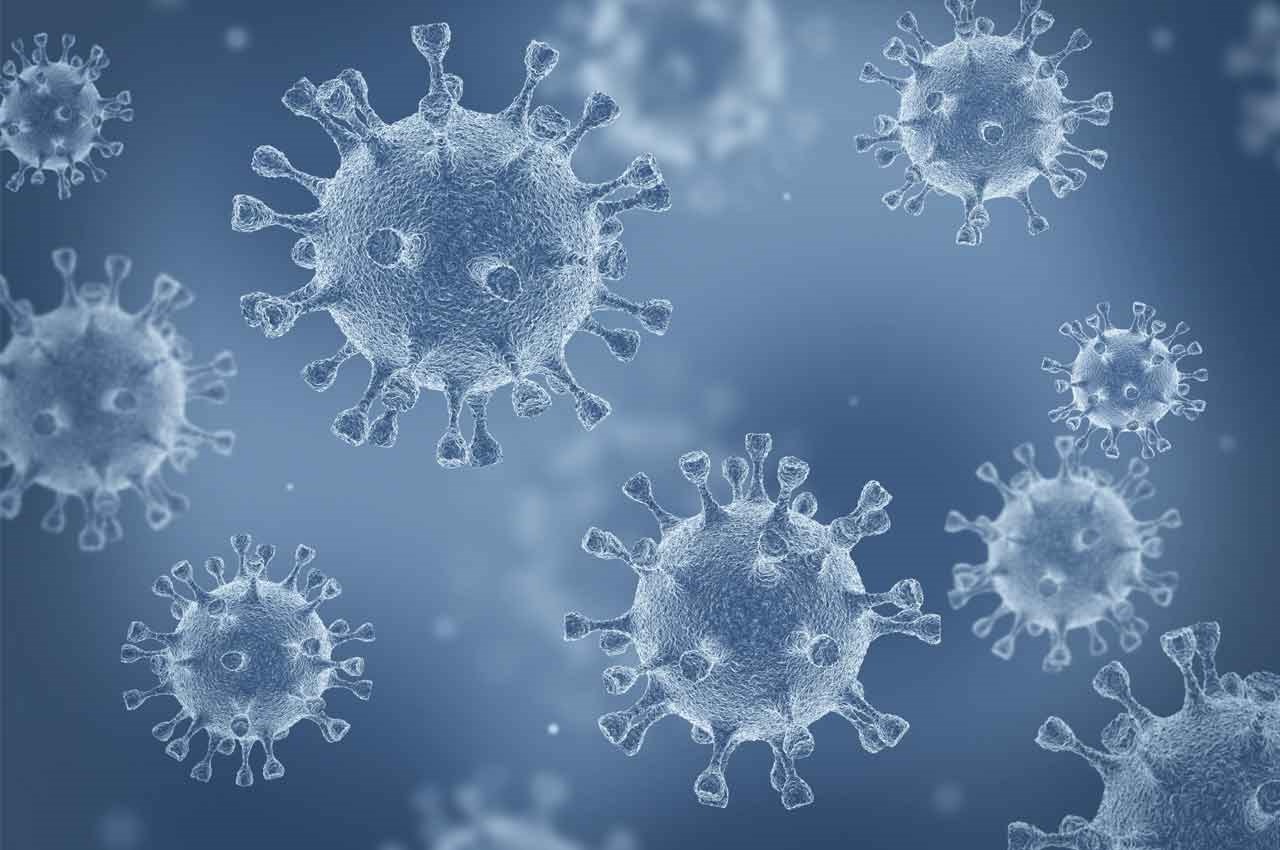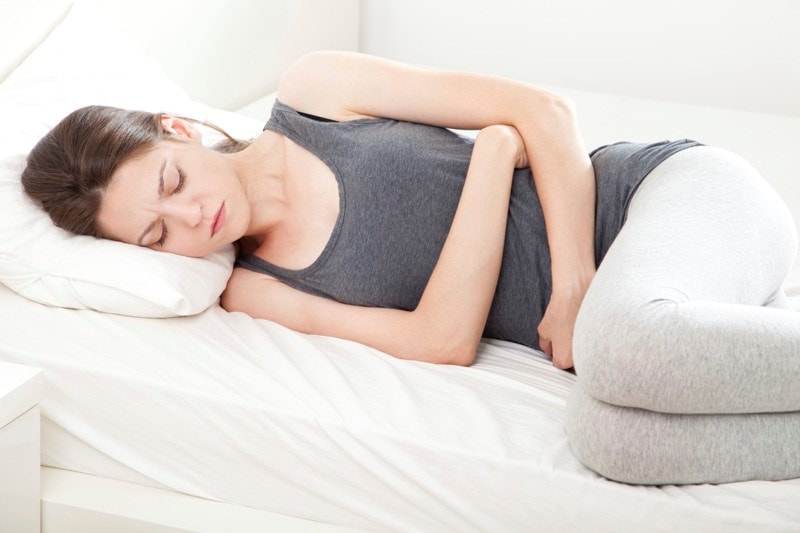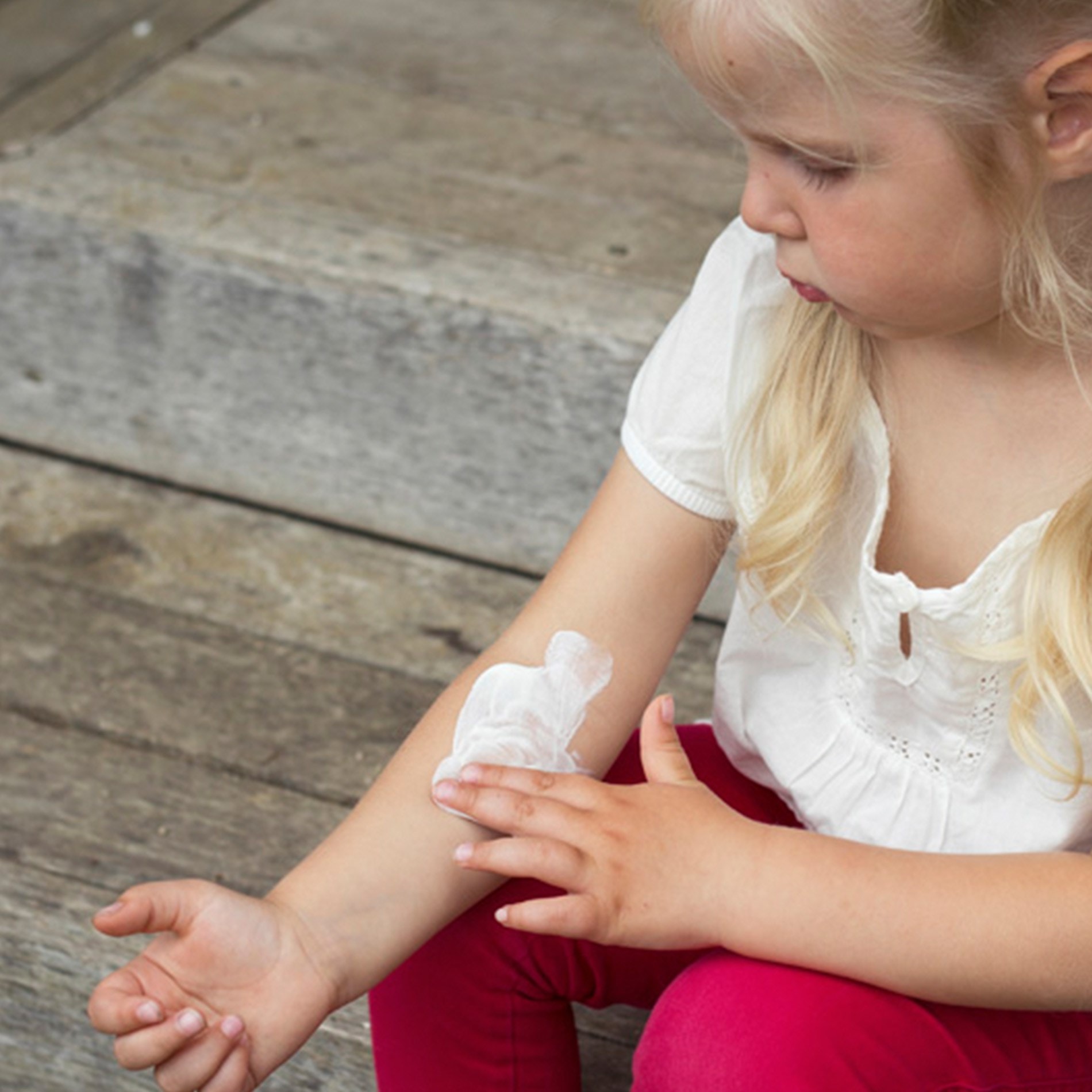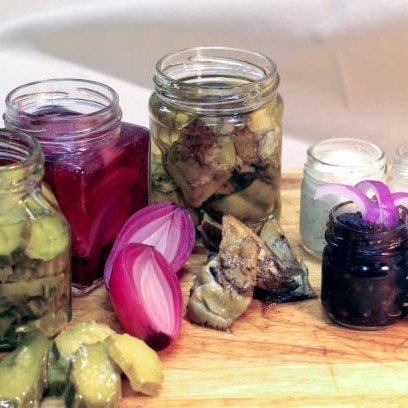Probiotics and Covid: a Look at the Research
The COVID-19 pandemic has been the driving force behind many clinical research studies over the past few years. Initially, the global scientific community raced to try and understand the virus, in order to slow its spread, examining every plausible angle. Amidst this research emerged a now widely accepted link between the SARS-CoV-2 (Covid-19) virus and the gut microbiome1.
In this article we'll cover the following topics:
- Covid and probiotics: the first connection
- Gut health and COVID-19
- COVID-19 and the gut-lung axis
- Probiotics for COVID-19
- Probiotics for long Covid
- Key takeaways
Covid and probiotics: the first connection
A 2021 clinical study, which received worldwide press, was one of the first to establish a link between the composition of the gut microbiome and symptom severity in COVID-19 infection1, however, this is not the first research article to call attention to the relationship between SARS-CoV-2, the virus strain implicated in COVID-19 and the gut, with its residing population of gut bacteria, known as the gut microbiome.
You can read more about the gut microbiome on the Probiotics Learning Lab.
Once the link was established between the virus and the health of the gut microbiome, it logically called into question whether probiotics might have a part to play in the clinical picture. In April 2021, The British Medical Journal published the results of an observational longitudinal study6 which brought us one step closer to an understanding of this valid question.
The study considered the impact of taking various nutritional supplements on the risk of testing positive for COVID-19. In total, 1.4 million users of the ZOE COVID Symptom Study App were asked about their use of nutritional supplements. More specifically, they were asked to disclose whether they regularly took any of the following supplements: Vitamin D, probiotics, Omega-3 fatty acids, multi-vitamins, garlic, zinc and vitamin C.
Only 4 of the 7 supplement types studied showed a negative association with the likelihood of testing positive for SARS- CoV-2. A reduction in risk was found in those study participants taking: probiotics, Vitamin D, Omega-3 fatty acids and multi-vitamins, and it should be noted that probiotics were associated with the lowest risk of testing positive for the virus.
Surprisingly, the study findings showed that taking supplements more commonly associated with immune-boosting - namely Vitamin C, zinc, or garlic - wasn't associated with any reduction in the risk of developing Covid. It was results of this kind which began to highlight the importance of the gut-Covid connection.
Gut health and COVID-19
Since the outbreak of the COVID-19 pandemic in early 2020, various clinical research studies have been published examining the relationship between SARS-CoV-2, gut health and the gut microbiome. Earlier in the course of the pandemic, in May 2020, researchers identified that SARS-CoV-2 can be transmitted via a faecal-oral route; infecting our gut cells2, and contributing to the gastrointestinal symptoms frequently present in acute infection3. Several months later, further research emerged highlighting the presence of dysbiosis and a unique gut microbiome composition pattern in COVID-19 patients when compared with the microbiomes of healthy individuals4. Several bacterial species were identified as being most commonly associated with increased disease severity including Clostridium ramosum and Clostridium hathewayi, whereas others were associated with a reduction in severity such as Alistipes oderdonkii and Faecalibacterium prausnitzi. These findings suggest that the SARS-CoV-2 virus has the ability to influence the composition of the gut microbiome and that this could ultimately have an impact on the body’s immune response to the virus.
We'll explore more about the different ways in which gut dysbiosis might affect Covid outcomes in the following sections.
You can read more about dysbiosis on the Probiotics Learning Lab.
COVID-19 and the gut-lung axis
As the main entry point of SARS-CoV-2 is via the respiratory tract, where the state of nasal/lung immune defences determine whether the virus goes on to affect other body systems, it's not immediately apparent how gut dysbiosis might affect respiratory health. However, it's becoming widely accepted that there is cross-talk between the gut and other body systems, in this case, via the 'gut-lung axis', which essentially describes the cross-talk between the gut and the respiratory system21 This begins to explain how gut dysbiosis can affect the health of the lung microbiota and consquently affect the risk of COVID-19 infection.22 We already know our gut bacteria influence our immune function.5 The microbiota in the lungs form a key part of the respiratory immune defences, and so a role for the gut-lung axis is being established in the progression of the virus.
Research has suggested that those with dysbiosis and low levels of known immunomodulatory commensal gut microbes have an exaggerated immune response to the SARS-CoV-2, when compared to those with a healthy gut microbiome1,15. This heightened immune response is recognised in the form of raised inflammatory markers and blood markers signifying tissue damage. Furthermore, this dysbiosis was suggested to be a contributing factor in the delayed resolution of symptoms after acute infection.
A 2021 study found associations between gut microbiota composition, levels of cytokines and inflammatory markers in patients with COVID-1915. Dysbiosis, via the gut–lung axis promotes-inflammation causing lung damage, but research indicates that probiotics might help to regulate cytokine secretion, and block the virus from invading and multiplying in host cells, by stimulating the immune response, and suppressing the activation of pro-inflammatory cytokines.29
Whilst scientific opinion is still relatively guarded when it comes to the use of probiotics as a treatment for Covid,23 it can no longer be denied that there appears to be a significant link between the gut and the development and severity of Covid symptoms. But the next question is, can probiotics help Covid, and if so, how do probiotics help Covid?

Probiotics for COVID-19
In late 2020, research findings from the world’s largest ongoing study of COVID-196 were published in which probiotics were found to have ‘a small protective effect against testing positive for the virus’, as quoted by lead researcher Marica Meroni. This study (mentioned previously) was published by the British Medical Journal, bringing increased credibility and visibility to its findings.
After studying the data collected from 1.4 million users of the ZOE COVID Symptom Study App, results indicated that women taking probiotic supplements, vitamin D, multi-vitamins and Omega-3 fatty acid supplements were less likely to test positive for SARS-CoV-27. Vitamin D has certainly been highly recognised for its role in the body’s immune response to SARS-CoV-2, with vitamin D deficiency being linked to increased COVID-19 symptoms severity8. As a result, vitamin D has garnered substantial interest in the medical community and with that, a surge in clinical research on this topic has arisen. Tens of journal articles examining the role of vitamin D in immunity related to COVID-19 had been published by 2021.
Probiotics have not yet quite achieved this validation, but it should be noted that of all health supplements assessed, probiotics were associated with the lowest risk of testing positive for SARS-CoV-2.
Several limitations of the study have already been pointed out:12 these limitations include the lack of baseline nutritional status information of the population studied; the fact that self-measured data collected is subject to bias; and the lack of representation across the general population. However, as highlighted by Marica Meroni the lead researcher of this study, the findings are worth considering as only some supplements were determined to be helpful. ‘Healthy bias’, where people who use the app are more likely to engage in health-conscious behaviours, does not account for the fact that only certain supplements were found to be protective against COVID-19. It would be expected that if it was ‘healthy bias’ alone at play, the association would be the same across all supplements; when in fact, vitamin C, zinc and garlic supplements demonstrated no protective effects against COVID-19.
Although the findings of this study are promising, it's clear that more research still needs to be done. But as our knowledge of this field continues to expand, more evidence to support taking probiotics to help against COVID-19 is coming to light.
One major UK study, published at the end of 2021, caused renewed interest in probiotics16. The study looked at probiotic strains influencing the duration and severity of symptoms among individuals with COVID-19. 126 participants were given a blend of probiotic Lactobacillus and prebiotic inulin for 30 days. Following this nutritional intervention, participants were found to have a significant improvement in GI and non-GI symptoms, including cough, fatigue, and subjective well-being, resulting in a meaningful improvement in overall well-being.
Another recent trial of note is a Mexican study which found that people with COVID-19 who took a specific combination of four probiotic bacterial strains had lesser symptoms two weeks after their initial infection compared to those who took a placebo18. However, more investigation is required as this trial excluded participants over the age of 60, an age group most at risk of developing severe COVID-19.
In terms of determining which probiotic strain is best for Covid, we're still a little way off. We know that the properties of an individual probiotic strain are specific to that strain alone, as well documented and substantiated by clinical research10,11. High quality, well-designed clinical trials are required to ascertain which specific probiotic strains may be beneficial in preventing the development or reducing symptom severity of COVID-19.
However, in early 2022, a study on probiotic interventions in the development of COVID-19 symptoms was published which used specific probiotic strains. Lactobacillus rhamnosus GG® supplementation was shown to reduce the likelihood of developing symptoms after being exposed to the COVID-19 virus17. L rhamnosus GG was also associated with a statistically significant reduction in COVID-19 diagnosis. We hope to see more specific probiotic strains for Covid identified in the future, and look forward to seeing the developing research in this area.
Lactobacillus acidophilus is a species of bacteria that lives in the human intestinal tract and plays an important role in human health. Specific strains of L. acidophilus are known for their probiotic effects in the gut, enhancing digestion, immunity, skin health and energy. It is often present in probiotic foods such as yoghurt or as a supplement in capsule or powder form. L. acidophilus has been increasingly recognised for its potential as a vaccine vector. Of note, the strain Lactobacillus acidophilus NCFM® has been identified as particularly useful for this purpose, given its ability to modulate immune cell function including dendritic cells and T cells33.
In terms of how probiotics might help protect against Covid or ameliorate symptoms: probiotics can help to address gut dysbiosis, either pre-existing or due to the effects of the virus. We've also seen in previous sections how our gut bacteria positively affect immune function1,5, and the health of the microbiota and immune cells in the respiratory system22.
Probiotics have also been utilised in a different manner to help against COVID-19 – to make a vaccine. Lactobacillus acidophilus has been increasingly recognised for its potential as a vaccine vector. Biomedical research carried out by a team of scientists at the Department of Microbiology, Immunology and Pathology in Colorado State University, assessed the use of genetically modified Lactobacillus acidophilus13 as a vaccine vector to target the coronavirus. Extensive clinical testing was required before it could be proven to be efficacious as a vaccine against SARS-CoV-2. In the meantime, other vaccines have been approved and disseminated.
Post-infection, there is growing interest in the use of probiotics for long Covid - read on to find out more about the research on this topic.

Probiotics for long Covid
Much thought has been given as to whether probiotics help reduce the risk of developing Covid, but another major area of interest is the role of the gut microbiome in the risk of post-Covid syndrome, or as part of management protocols in those already affected. A review of the evidence to date suggests that the chance of developing what has come to be known as 'long COVID' after a Covid infection may also be influenced by the composition and health of the gut microbiome.24,26 Gut dysbiosis has been connected to both the risk of developing Covid infection and long Covid following infection; and the potential of the microbiota as a diagnostic marker for many other diseases has been suggested. It's not known for certain whether the dysbiosis seen in Covid patients was pre-existing or caused by the virus itself, but in a review of 16 studies28 which compared the gut microbiota of COVID-19 patients to those of healthy controls, the gut bacterial diversity of COVID-19 patients, in both the acute and recovery phases, was shown to be consistently lower than non-COVID-19 individuals. The gut microbiomes of acute Covid patients showed fewer anti-inflammatory butyrate-producing bacteria and more pro-inflammatory gut bacteria, and this unhealthy gut dysbiosis continued even once the patients had recovered.
Symptoms of long COVID-19 typically persist for up to a year following infection, and include fatigue, respiratory symptoms; a loss of taste and/or smell, digestive symptoms, A negative effect on mental health has also been noted25
Research so far into the use of probiotics for long Covid indicates that they may help to alleviate long Covid symptoms. A 2021 study undertaken on 147 male long COVID-19 patients in England reported signification reductions in fatigue and coughs after taking a blend of Lactobacillus probiotics and prebiotics plus a capsule containing phytochemicals20.
But further research has indicated that giving probiotics during Covid infections may even help to reduce the risk of long Covid developing. In 2022, a trial involving 58 patients suggested that giving probiotics during Covid-19 infection may help to reduce the risk of subsequent long Covid symptoms. who were hospitalised for COVID-19, 24 were given oral probiotics during their hospital stay, whereas while 34 were given only the standard treatment. Serum metabolomic profiling of patients was performed at admission and at discharge. Six months after discharge, the patients were assessed for fatigue using the Fatigue Assessment Scale. Overall, 70.7% of participants reported fatigue, with 29.3% being free from fatigue. The probiotic group showed a significantly lower proportion of subjects reporting fatigue than the group which had received the standard treatment. Based on these results, the study authors suggested that administration of probiotics to Covid patients during hospitalisation may prevent the development of chronic fatigue so typical in long Covid sufferers. It was thought that the probiotics positively impacted key metabolites involved in the utilisation of glucose, as well as optimising energy pathways.27
A review of 73 studies25 concluded that a connection may exist between the psychiatric symptoms of long Covid and the gut microbiome, therefore probiotics may offer a potential adjunctive treatment to conventional medications in alleviating mental health symptoms following COVID-19 infections. The connection between gut health and mental health is becoming well-documented - you can read more about the gut-brain axis on the Probiotics Learning Lab.
Overall, mounting research is indicating a role for probiotics in Covid management. There is still more research to be done as scientists are still learning more about the virus itself, but it's encouraging to think that some natural interventions like probiotics may be able to offer some positive benefits.
Key takeaways:
- SARS-CoV-2 can affect gut health by infecting gut cells and by causing gastrointestinal symptoms. It also can influence the composition of the gut microbiome.
- Evidence suggests that good gut health and/or the use of probiotics may play a part in reducing the risk and management of COVID-19. Although results thus far have been promising, further investigation is required, and specific probiotic strains for Covid have yet to be identified
- The gut microbiome plays an important role in normal immune function, the gut-lung axis, and gut-brain axis, which could explain how probiotics might positively affect Covid outcomes
If you enjoyed this article, you may also like to read:
Gut Health – All you need to know
References
- Yeoh YK, Zuo T, Lui GC-Y, et al. Gut microbiota composition reflects disease severity and dysfunctional immune responses in patients with COVID-19. Gut. 2021:1-9. doi:10.1136/gutjnl-2020-323020
- Lamers MM, Beumer J, van der Vaart J, et al. SARS-CoV-2 productively infects human gut enterocytes. Science (80- ). May 2020:eabc1669. doi:10.1126/science.abc1669
- Cholankeril G, Podboy A, Aivaliotis VI, et al. High Prevalence of Concurrent Gastrointestinal Manifestations in Patients with SARS-CoV-2: Early Experience from California. Gastroenterology. 2020. doi:10.1053/j.gastro.2020.04.008
- Zuo T, Zhang F, Lui GCY, et al. Alterations in Gut Microbiota of Patients With COVID-19 During Time of Hospitalization. Gastroenterology. 2020;159(January):944-955.
- Zheng D, Liwinski T, Elinav E. Interaction between microbiota and immunity in health and disease. Cell Res. 2020;30(6):492-506. doi:10.1038/s41422-020-0332-7
- COVID Symptom Study - About this Research. https://covid.joinzoe.com/about. Accessed January 20, 2021.
- Louca P, Murray B, Klaser K, et al. Dietary supplements during the COVID-19 pandemic: insights from 1.4M users of the COVID Symptom Study app - a longitudinal app-based community survey. medRxiv. 2020:0. https://doi.org/10.1101/2020.11.27.20239087.
- Griffin G, Hewison M, Hopkin J, et al. Vitamin D and COVID-19: evidence and recommendations for supplementation. R Soc Open Sci. 2020;7(12):201912. doi:10.1098/rsos.201912
- Effect of Lactobacillus on the Microbiome of Household Contacts Exposed to COVID-19 - Full Text View - ClinicalTrials.gov. https://clinicaltrials.gov/ct2/show/NCT04399252. Accessed January 21, 2021.
- Bubnov R V, Babenko LP, Lazarenko LM, et al. Specific properties of probiotic strains: relevance and benefits for the host. EPMA J. 2018;9:205-223. doi:10.1007/s13167-018-0132-z
- McFarland L V., Evans CT, Goldstein EJC. Strain-specificity and disease-specificity of probiotic efficacy: A systematic review and meta-analysis. Front Med. 2018;5(MAY). doi:10.3389/fmed.2018.00124
- Expert reaction to preprint from the ZOE COVID Symptom Study app looking at vitamin supplements and likelihood of reporting a positive COVID-19 test | Science Media Centre. https://www.sciencemediacentre.org/expert-reaction-to-preprint-from-the-zoe-covid-symptom-study-app-looking-at-vitamin-supplements-and-likelihood-of-reporting-a-positive-covid-19-test/?cli_action=1611145450.453. Accessed January 20, 2021.
- Coronavirus ‘spike’ protein just mapped, leading way to vaccine | Live Science. https://www.livescience.com/coronavirus-spike-protein-structure.html. Accessed April 14, 2020.
- Ud A, Mazhar M, Waseem M, Ahmad W, Bibi A. SARS-CoV-2 microbiome dysbiosis linked disorders and possible probiotics role. Biomed Pharmacother. 2021;133(January).
- Yeoh Y et al., (2021) Gut microbiota composition reflects disease severity and dysfunctional immune responses in patients with COVID-19. Gut, 70(4):698-706.
- Thomas R, Aldous J, Forsyth R, Chater A, Williams M, (2021) The Influence of a blend of Probiotic Lactobacillus and Prebiotic Inulin on the Duration and Severity of Symptoms among Individuals with Covid-19. Infectious Diseases Diagnosis & Treatment. 5: 182.
- Tang H, Bohannon L, Lew M, et al. (2022) Randomised, double-blind, placebo-controlled trial of Probiotics To Eliminate COVID-19 Transmission in Exposed Household Contacts (PROTECT-EHC): a clinical trial protocol. BMJ Open 2021;11:e047069. doi: 10.1136/bmjopen-2020-047069
- Pedro Gutiérrez-Castrellón, et al. (2022) Probiotic improves symptomatic and viral clearance in Covid19 outpatients: a randomized, quadruple-blinded, placebo-controlled trial, Gut Microbes, 14:1, DOI: 10.1080/19490976.2021.2018899
- Liu Q et al., (2022) Gut microbiota dynamics in a prospective cohort of patients with post-acute COVID-19 syndrome, Gut. 71:544-552.
- Thomas, R.; Williams, M.; Aldous, J.; Yanagisawa, Y.; Kumar, R.; Forsyth, R.; Chater, A. A Randomised, Double-Blind, Placebo-Controlled Trial Evaluating Concentrated Phytochemical-Rich Nutritional Capsule in Addition to a Probiotic Capsule on Clinical Outcomes among Individuals with COVID-19—The UK Phyto-V Study. COVID 2022, 2, 433-449. https://doi.org/10.3390/covid2040031
- Yi-Hsiang Wang, Aniket Limaye, Je-Ruei Liu, Tai-Na Wu,(2022) Potential probiotics for regulation of the gut-lung axis to prevent or alleviate influenza in vulnerable populations, Journal of Traditional and Complementary Medicine, ISSN 2225-4110, https://doi.org/10.1016/j.jtcme.2022.08.004. (https://www.sciencedirect.com/science/article/pii/S2225411022000608)
- Jiezhong Chen, Luis Vitetta (2022) The Role of the Gut-Lung Axis in COVID-19 Infections and Its Modulation to Improve Clinical Outcomes. Front. Biosci. (Schol Ed) 14(3), 23. https://doi.org/10.31083/j.fbs1403023
- Sandrayee Brahma, Amruta Naik, Ronan Lordan, (2022) Probiotics: A gut response to the COVID-19 pandemic but what does the evidence show?, Clinical Nutrition ESPEN, 51:17-27: ISSN 2405-4577, https://doi.org/10.1016/j.clnesp.2022.08.023. (https://www.sciencedirect.com/science/article/pii/S2405457722004521)
- Alenazy MF, Aljohar HI, Alruwaili AR, Daghestani MH, Alonazi MA, Labban RS, El-Ansary AK, Balto HA. (2022) Gut Microbiota Dynamics in Relation to Long-COVID-19 Syndrome: Role of Probiotics to Combat Psychiatric Complications. Metabolites.Sep 27;12(10):912. doi: 10.3390/metabo12100912. PMID: 36295814; PMCID: PMC9611210.
- Letchumanan V, Thye AY, Law JW, et alIDDF2022-ABS-0207 The potential use of probiotics in alleviating psychological symptoms of long covid-19Gut 2022;71:A57.
- Liu Y, Kuang D, Li D, Yang J, Yan J, Xia Y, Zhang F, Cao H. Roles of the gut microbiota in severe SARS-CoV-2 infection. Cytokine Growth Factor Rev. 2022 Feb;63:98-107. doi: 10.1016/j.cytogfr.2022.01.007. Epub 2022 Jan 31. PMID: 35131164; PMCID: PMC8802135.
- Santinelli L, et al (2022) Oral Bacteriotherapy Reduces the Occurrence of Chronic Fatigue in COVID-19 Patients Frontiers in Nutrition, Jan 12;8:756177. doi: 10.3389/fnut.2021.756177. PMID: 35096923; PMCID: PMC8790565.
- Cheng X, Zhang Y, Li Y, Wu Q, Wu J, Park SK, Guo C, Lu J. Meta-analysis of 16S rRNA microbial data identified alterations of the gut microbiota in COVID-19 patients during the acute and recovery phases. BMC Microbiol. 2022 Nov 14;22(1):274. doi: 10.1186/s12866-022-02686-9. PMID: 36376804; PMCID: PMC9662111.
- Synodinou, K.D.; Nikolaki, M.D.; Triantafyllou, K.; Kasti, A.N. Immunomodulatory Effects of Probiotics on COVID-19 Infection by Targeting the Gut–Lung Axis Microbial Cross-Talk. Microorganisms 2022, 10, 1764. https://doi.org/ 10.3390/microorganisms10091764
- Li J et al., (2023) Assessment of microbiota in the gut and upper respiratory tract associated with SARS-CoV-2 infection, Microbiome. 11:38.
- Wang Yi-Hsiang et al., (2023) Potential probiotics for regulation of the gut-lung axis to prevent or alleviate influenza in vulnerable populations, Journal of Traditional and Complementary Medicine. 13:2, 161-169.
Popular Articles
View all General Health articles-
General Health19 Sep 2024
-
General Health12 Feb 2024

